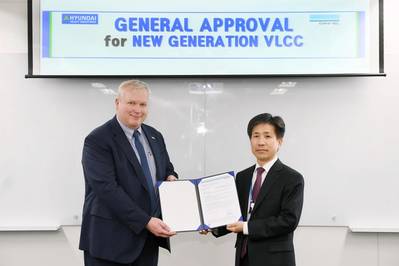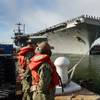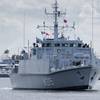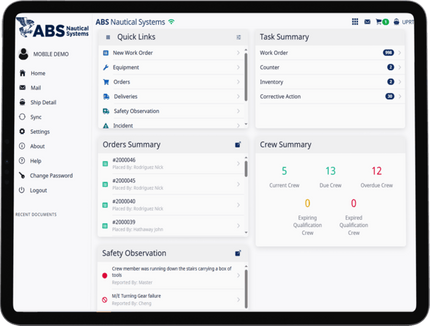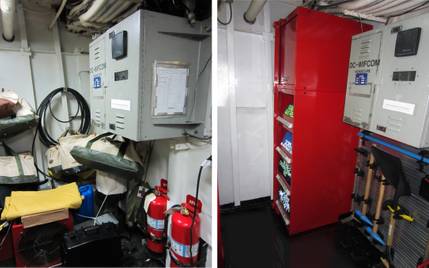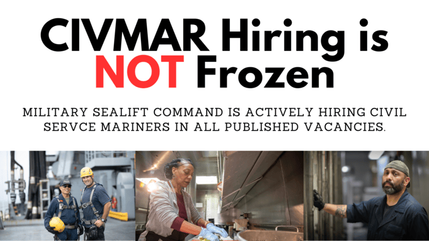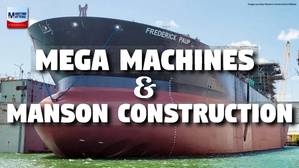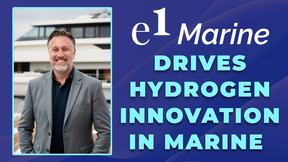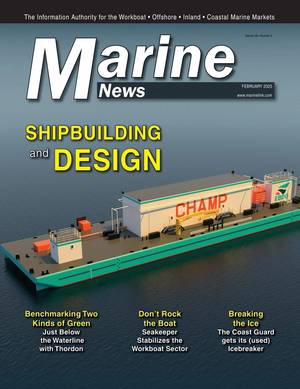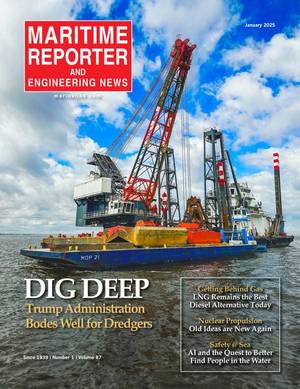DNV GL Awards GASA to HHI for VLCC Concept
DNV GL has presented Hyundai Heavy Industries (HHI) with a general approval for ship application (GASA) for a new concept of very large crude carriers (VLCCs) with a centreline oil-tight longitudinal bulkhead. The new design will reduce potential damage and operational risk by featuring a simpler structural arrangement, loading patterns and piping arrangements. Vidar Dolonen, DNV GL Regional Manager for Korea & Japan, presented the certificate to Seung Ho Jeon, Executive Vice President of HHI, in Seoul.
The new VLCC with a centreline longitudinal bulkhead design concept was developed by HHI, marking a world first. The concept introduces a single centreline design with two rows of cargo tanks, resulting in seven pairs of tanks and one additional pair of slop tanks.
The main benefit is an improvement in the operator’s convenience in terms of cleaning, inspection and maintenance by simpler structural, loading and piping arrangements, as well as the reduction of piping systems and instruments due to a smaller number of cargo tanks. Furthermore, the fuel consumption was improved by developing new design lines for the new VLCC with a centreline longitudinal bulkhead.
“We believe the recent GASA approval is opening up a new era of VLCC designs which significantly strengthen the competitiveness of these HHI built ships,” said Seung Ho Jeon.
As part of the GASA scope, DNV GL carried out a full structural verification and feasibility study in accordance with classification rules and harmonized common structural rules (CSR). The details were confirmed by a fine mesh analysis and a fatigue analysis. In addition, the sloshing and local vibration analyses for cargo tanks were reviewed in a comparative study to enhance the structural reliability of this new VLCC.



